We’ve watched the thrilling evolution of both the SharkSafe Barrier and shark conservation work of Dr Sara Andreotti and her teams, as well as the increased interest of our customers in our SharkWise Project.
Just to refresh your memory: Italtile and ITD partnered with Dr Andreotti to develop the Italtile SharkWise Project. We support her extraordinary work, help fund her students, and continue to raise awareness of the importance of a working ocean ecosystem over here on the Italtile Blog. And you, our valued customers do your bit to help when you choose a Tivoli tap; with every purchase of a Tivoli tap, we donate R2 to the fund.
View video: https://bit.ly/ItaltileSharkWiseProjectVideo
Here’s the journey so far, with some questions and answers:
How much money has been collected? In the short time that the SharkWise Project fund has been operating – only a year – we are excited to report that we recently handed over a R150 000 cheque to the Stellenbosch University Department of Botany and Zoology. Snaps to the Italstylistas who made a waterwise and ocean-kind choice. R2 might seem like a drop in the ocean to many, but every bit counts when it comes to conservation.
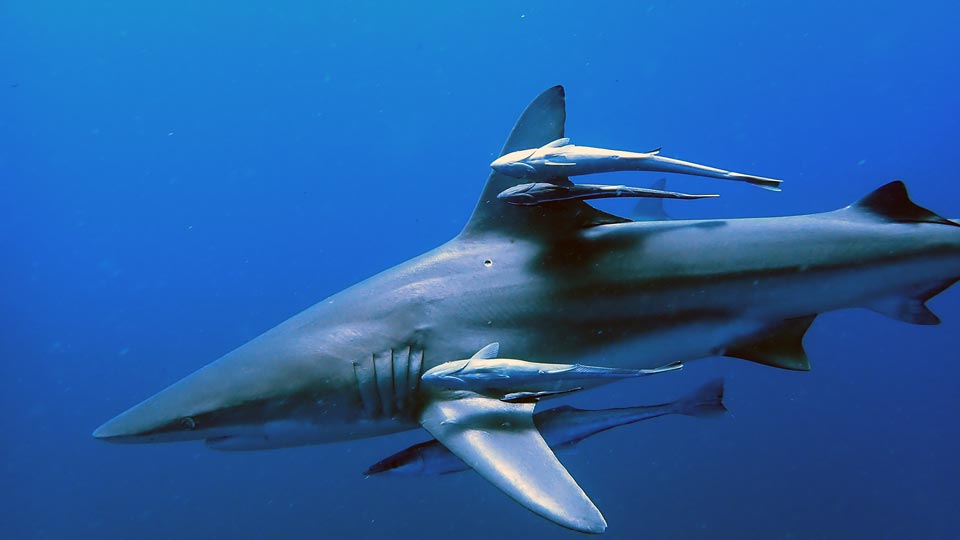
So, what are the funds used for? The money you helped us raise has helped fund the purchase of high tech laboratory equipment and a specialised PC for data analysis, along with field work equipment and travel expenses.
How will the funds assist the SharkSafe Barrier Project and ongoing conservation work? Thanks to the SharkWise Project, we’ve had the privilege of helping three Masters students and two PhD students enrol at Stellenbosch University: their projects will span studies in Environmental DNA, population genetics and shark behaviour.
What plans are in the pipeline? It is Dr Andreotti’s fervent wish that more and more conservation-minded corporates join forces with Italtile, ITD and Tivoli taps to swell the muscle needed to fully support the ongoing study and conservation of sharks along our coastlines. Our first Masters graduate, Megan Maroen, concludes her studies in December this year, and the results of her work will be published in 2023.
Dr Andreotti will then advertise the position for a new Masters project in January 2023 and the successful applicant will take Megan’s place to further expand on her great work.
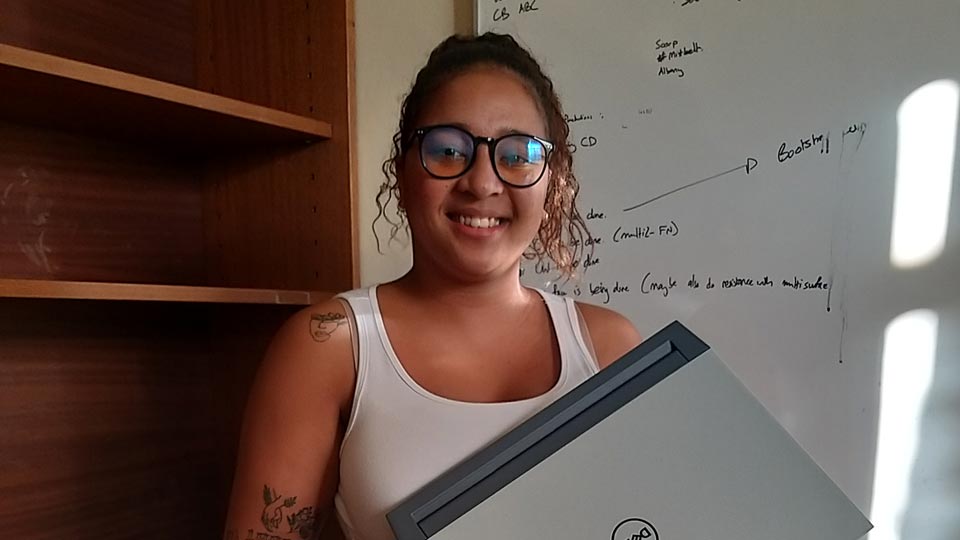
What part does Megan Maroen play in the big shark conservation picture? Thanks to the support and funding of Italtile and their partners, Megan Maroen – an aspiring marine biologist and current MSc student at Stellenbosch University – was able to cover all her study expenses and living costs, and will be graduating at the end of this year. As far back as she can remember, Megan was always a marine enthusiast, but was never exposed to marine education, ocean ecology or the awareness of the importance of a balanced marine ecosystem to the earth. She is passionately driven to ensure that a range of exciting and immersive shark conservation programmes are made available to the next generation.
What else has the SharkWise Project helped establish? The SharkWise Project Marine Internship has been established. This is a three month research-orientated internship based in Umkomaas, KZN, created to mentor young people interested in shark and reef research and conservation. The programme is run by Dr Sara Andreotti, together with Walter Bernadis of African Watersports. To be considered for the internship, young hopefuls should email sharkwiseproject@gmail.com
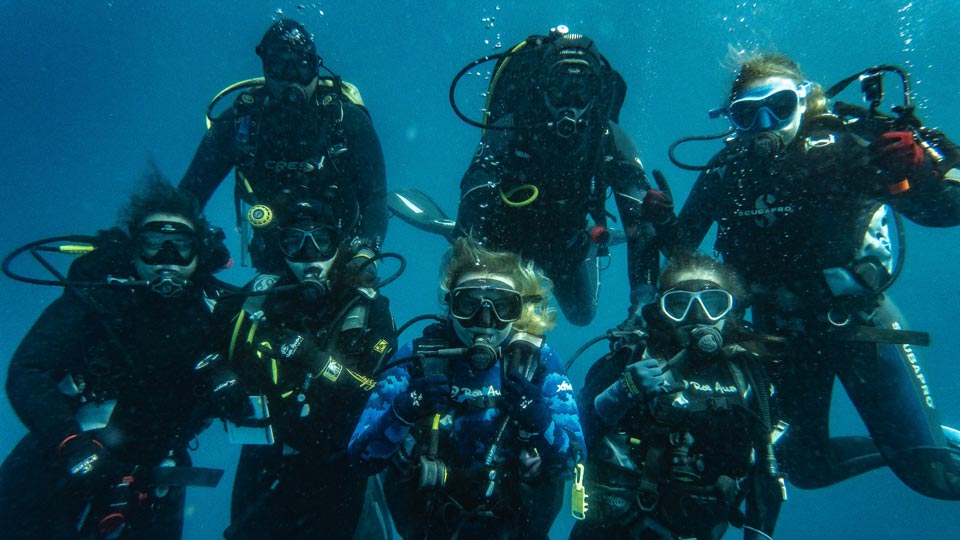
Italtile staff get up close and personal with the business end of an apex predator! Shark cage diving is very highly regulated in South Africa, to protect both humans and sharks, and it’s still the safest way to get the thrill of a close encounter with these extraordinary apex predators in their natural habitat. Dr Sara Andreotti uses the experience to gather much of her shark data. Recently, to incentivise Italtile Staff to educate customers about the SharkWise Project, Tivoli taps and the R2 donation with purchase, we offered the incredible prize of a Shark Cage Dive Experience in Gansbaai.
So, what can you expect to happen on a shark cage dive trip?
You arrive at the crew house of Kleinbaai in Gansbaai, where you are briefed about shark conservation, safety procedures on the boat, the weather and the crucial cage protocol. Once on board it is a quick 15 minute ride to the dive site, where a combination of fish oil, smashed fish and sea water are used to attract the sharks closer to the vessel. Once the sharks arrive, the operator will use a large fish head attached to a buoy and a long rope, to play with the sharks – very much like a cat lover plays with a cat and a toy on a string. The sharks that decide to stick around make the best subjects for wildlife photography enthusiasts. The clients are then provided with a thick wetsuit and lowered into the cage to watch the process at close range; or remain on the boat to observe the sharks from above.
Some final SharkNotes for today, from D Sara Andreotti. Among all the fascinating creatures living below the surface, sharks are arguably the ones that spark the most contradictory feelings from people: some people obsessively love them, some fear them and other don’t want to hear about them! These animals are also broadly vilified by movies and media outlets, looking to leverage people’s thirst for shocking stories.
In fact, most of the opinions about sharks out there don’t come from personal experience.
What is true, regardless of people’s feelings, is that sharks are extremely important for the marine environment. They are key for maintaining a balanced and healthy ecosystem, eliminating sick individuals from their prey’s populations, keeping smaller predators’ populations in check, and their distribution confined. Unfortunately, sharks are also facing an unprecedented threat from human activity. The vast majority of sharks in South Africa are legally fished, poached, killed as bycatch, and targeted by shark-nets for “beach protection”.
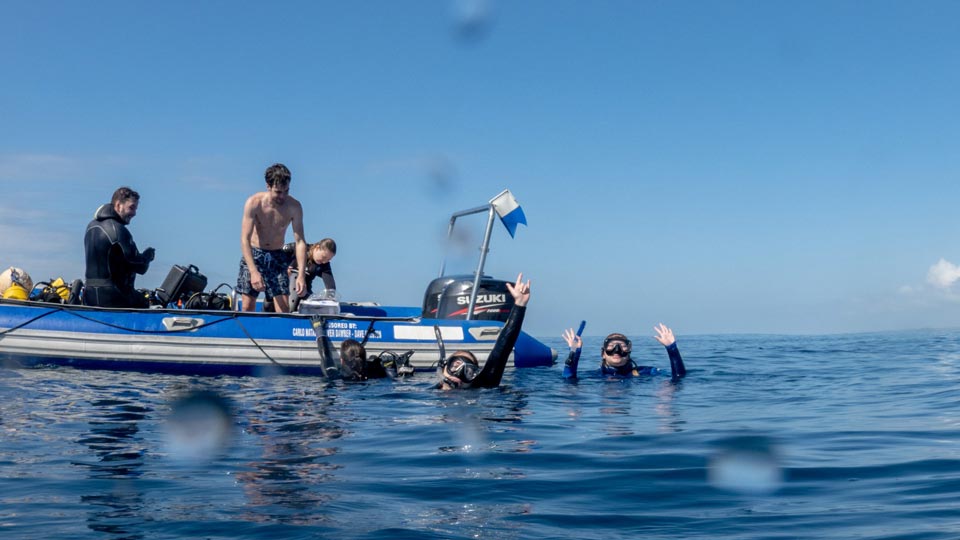
These threat becomes even bigger when there is a lack of information about shark population numbers, distribution and reproductive cycles. This prevents efficient management and conservation effort. As a response, South Africa started to prioritise shark research in the National Environment Biodiversity Assessment Act (2004), the National Plan of Action for Sharks (NPOA Sharks 2020) and in the Shark Biodiversity Management Plan (SBMP 2015), which states that “to achieve and maintain a favourable conservation status for resident and migratory sharks within South African waters it is necessary to have science-based management approaches”.
Of course it is quite challenging to achieve all this, including the fact that studying sharks requires specialist scientists and specialised training; it is a time consuming and costly exercise.
All the above was the premise behind the launch of The SharkWise Project. The Project was born from the collaboration between conservation-minded corporates Italtile and Stellenbosch University, to increase shark research effort in South Africa. The goal is to raise the necessary funds, enhance shark research and ultimately train the next generation of marine biologists to expand the work in the future.
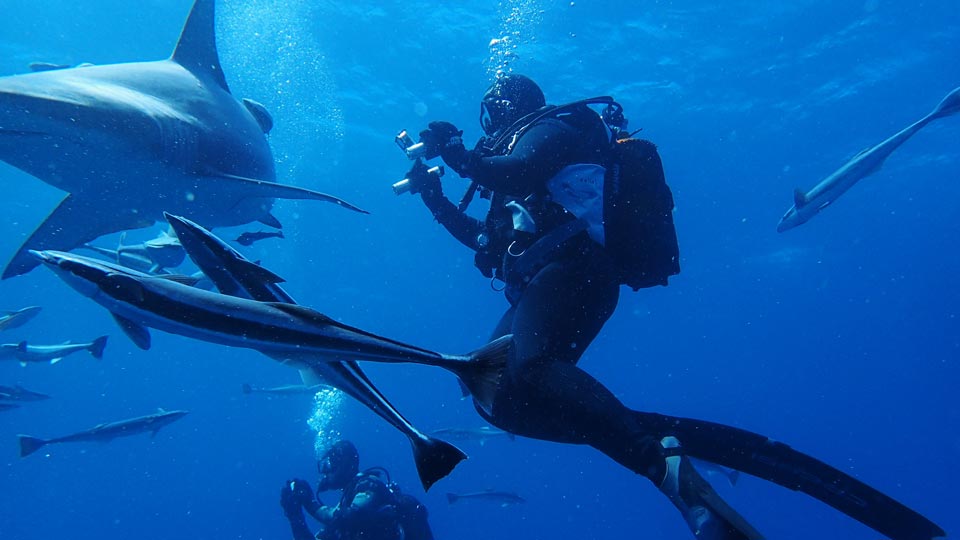
With the weight of concerned citizens and other corporates behind us, we have faith that our oceans have a future. Which means that our earth has a future, too.










































Validate your login